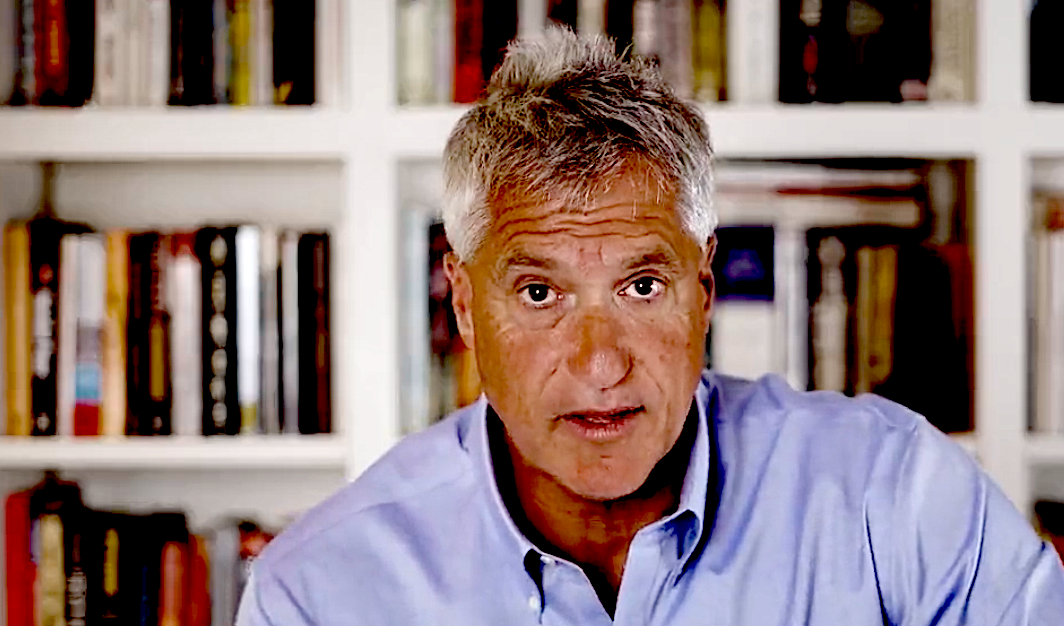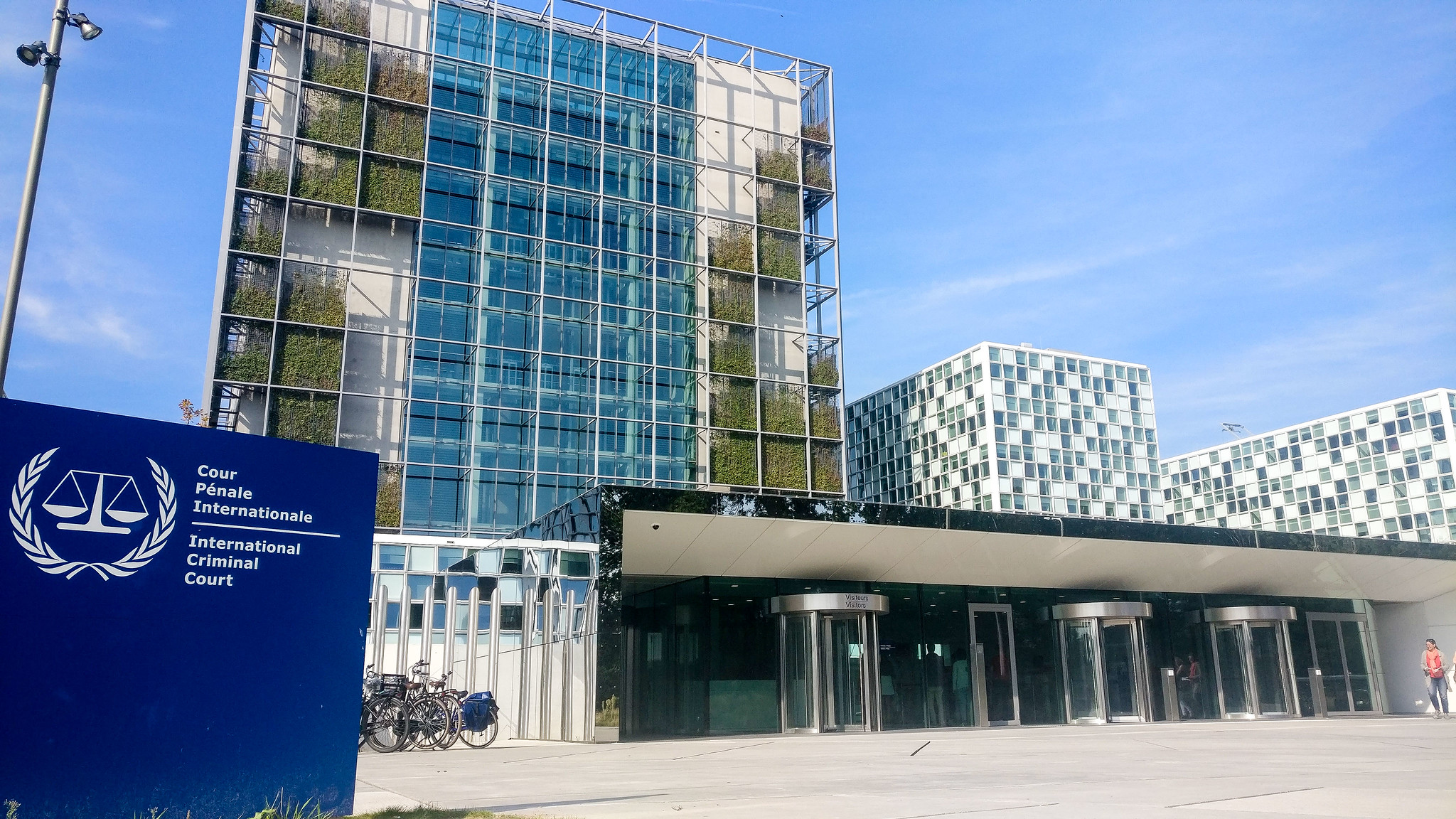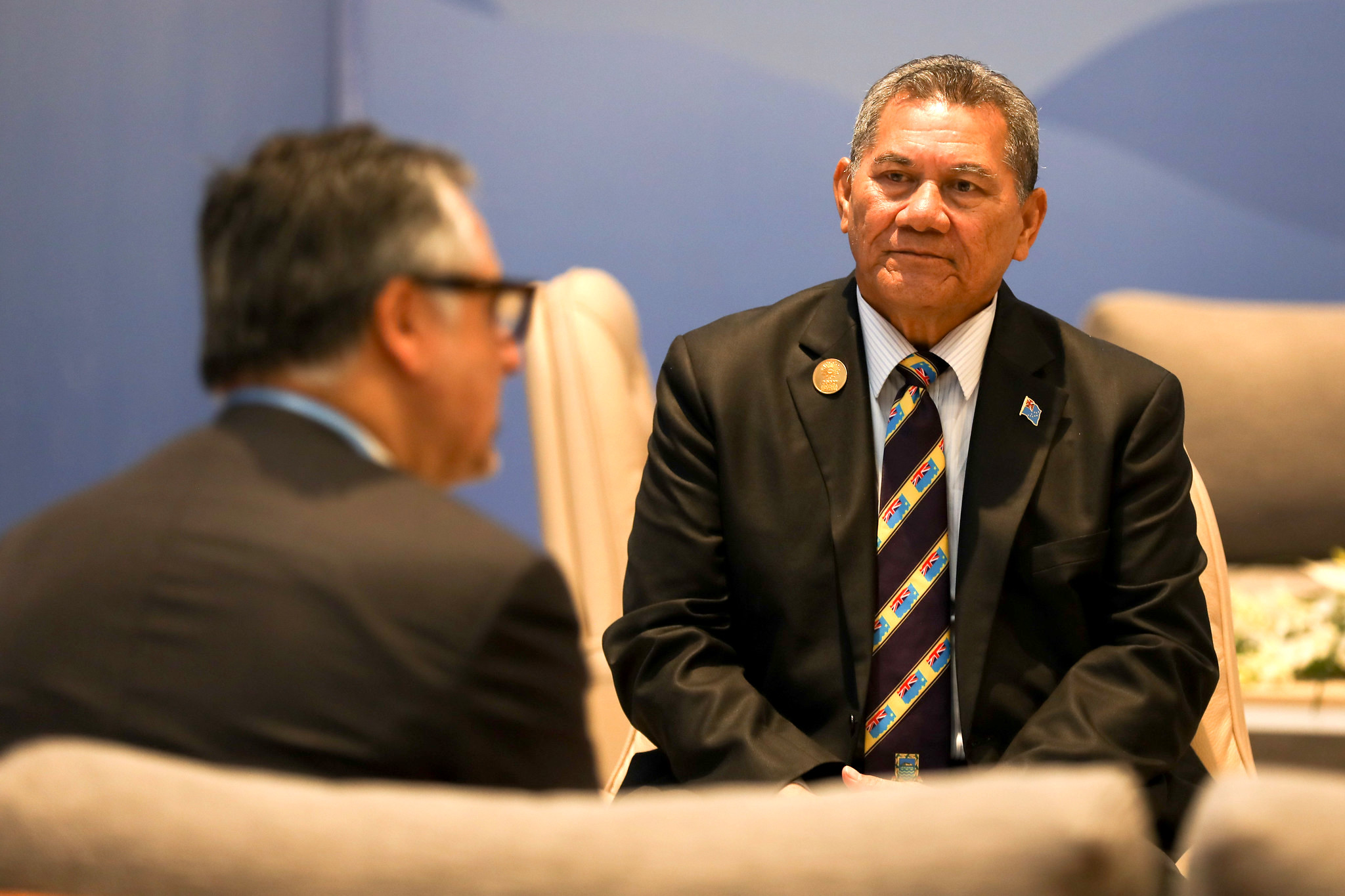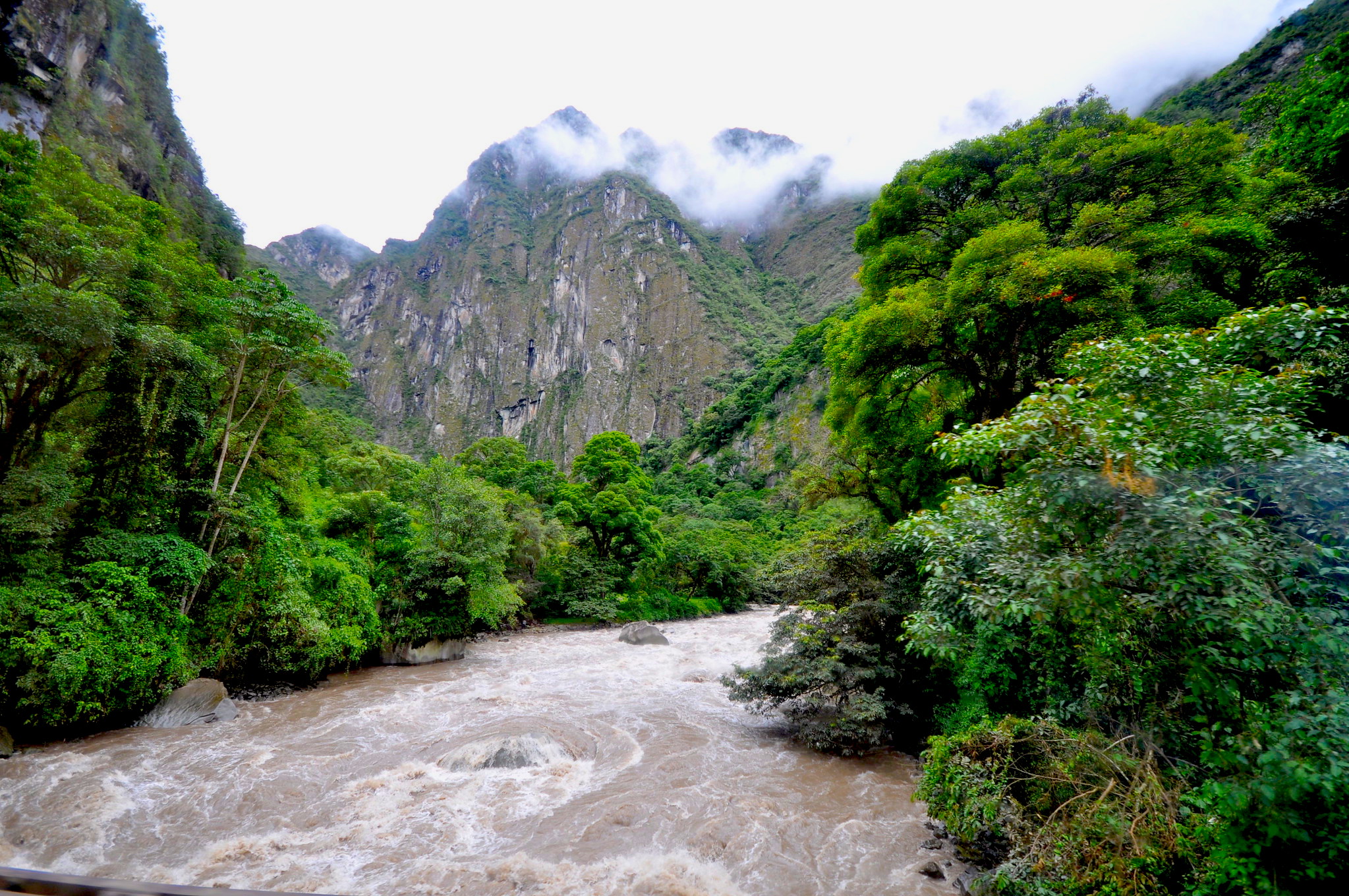The environmental lawyer offers five key legal initiatives — including a fossil-fuel nonproliferation treaty — to combat industry’s assault on climate.

Steven Donziger in a video message to supporters in September 2021. (Steve Donziger, Twitter)
By Jessica Corbett
Common Dreams
Steven Donziger, the American human rights attorney targeted by Big Oil for his work in support of Indigenous people impacted by fossil fuel pollution, presented five legal solutions to the worsening climate emergency this week.
Donziger was freed in April after spending nearly 1,000 days under house arrest for a U.S. case stemming from a massive settlement he won in Ecuadorian courts against Chevron over its pollution of the Amazon rainforest.
While Donziger’s “completely unjust” detention has led federal lawmakers to push for reforming the U.S. legal system, the lawyer continues to use his platform to fight for environmental justice.
“It’s all too easy to feel overwhelmed and helpless in the face of such widespread catastrophe. But we as citizens can do something right now,” Donziger wrote in a Tuesday column for The Guardian on the heels of the COP27 climate summit in Sharm El-Sheikh, Egypt.
“Together, alongside increased citizen activism, these ideas can begin to provide a coherent and comprehensive legal framework for all of us to help save the planet,” Donziger argued. His first proposal: Make ecocide an international crime.
There has been growing global support for doing just that. In July, international lawyers published a legal definition of the term, declaring that ecocide “means unlawful or wanton acts committed with knowledge that there is a substantial likelihood of severe and either widespread or long-term damage to the environment being caused by those acts.”
Stop Ecocide International and others advocate for amending the Rome Statute of the International Criminal Court to make ecocide its fifth crime, following genocide, crimes against humanity, war crimes, and crimes of aggression.

International Criminal Court, The Hague, 2017. (jbdodane, Flickr, CC BY-NC 2.0)
According to Donziger,
“Ecocide would expose executives of fossil fuel companies to potential criminal liability for signing off on acts of pollution. And that personal exposure will significantly change the decision-making calculus of these executives in the planet’s favor.”
The attorney’s second solution is to enact a fossil fuel nonproliferation treaty. International support for this idea has also grown in recent months, culminating in the island nation of Tuvalu proposing the creation of such an agreement at COP27 earlier this month.

Kausea Natano, prime Minister of Tuvalu, on Nov. 7 at COP27 in Sharm el-Sheikh, Egypt. (UNclimatechange, Flickr)
Donziger also called for banning so-called SLAPP litigation (which stands for strategic lawsuits against public participation), explaining that they “have become the fossil fuel industry’s go-to move to silence environmental campaigners, drain resources from advocates, and weaken the climate movement, which is the most essential component to forcing governments to phase out the industry.”
Just before House Democrats held a September hearing to blast Big Oil for “weaponizing” the law against climate campaigners, EarthRights International released a first-of-its-kind analysis showing how the fossil fuel industry has engaged in “judicial harassment” of over 150 activists. The nonprofit’s report highlighted 93 SLAPP cases and 49 “abusive subpoenas.”
“The solution is simple,” Donziger asserted. “Governments must enact what are called anti-SLAPP laws that punish corporations that engage in this type of legal intimidation.”
The lawyer further argued that humanity must protect the Amazon headwaters, noting that “a quiet legal revolution is being led by Indigenous peoples in the Amazon countries of Brazil, Ecuador, Venezuela, and Peru.”
“Called the Amazon Sacred Headwaters Initiative, these frontline Earth defenders have proposed a feasible plan to provide international legal protection to what might be the most important ecosystem on Earth,” he wrote. “Essentially, this plan would prohibit any further fossil fuel development in the area that comprises the headwaters of the Amazon and contains the planet’s greatest concentration of biodiversity.”

The Urubamba River in Peru, a partially navigable headwater of the Amazon River, 2009. (Jorge Láscar, Flickr, CC BY 2.0)
Donziger’s final legal solution is “binding climate reparations.” Specifically, he proposed a treaty requiring each wealthy country to pay a fixed amount proportionate to its gross domestic product “into a fund administered by a neutral party with actual representation from the small countries most affected” by warming temperatures and the negative impacts resulting from the climate crisis.
“To be clear, I am not arguing that these proposed changes alone will save the planet. But the right combination of legal changes happening quickly can catalyze progress,” he emphasized.
The attorney’s column comes as advocates of ambitious climate action celebrate some of the progress made at COP27 — such as securing a deal to create a loss and damage fund — while also spotlighting the conference’s failures, from the abuse of activists and the historic presence of Big Oil lobbyists to the lack of a final agreement to phase out all fossil fuels.
Jessica Corbett is a staff writer for Common Dreams.
This article is from Common Dreams.
The views expressed are solely those of the author and may or may not reflect those of Consortium News.

This is very rational but we are in a world gone mad. I’d say think outside the box. How to end-run around governments so we-the-people hold sway? I’d start by establishing an ad hoc Wisdom Council of illustrious people. Steve starts it. He selects the next person. Say MacKenzie Scott. They pick Kate Raworth, and so on, where if they deliberated and came out with what to do, the world would listen. (My first suggestion would be to get behind UBI for everyone in the civilized world.) I’ve tried to enroll Greg Palast to think with me about this! Here’s my podcast with him about what he would do if he ran the world, which is a good question to be asking: hxxps://SueSpeaksPodcast.com.
All good intentions but…what really MUST be tackled first is the tremendous greed and corruption that exist all over.
Excellent article. Only problem I have with it, is the alleged enforcing of any legislation by the I.C.C. We have seen it time and time again, where countries/Govts/companies/individuals have breached Laws/rules ect and even though in some cases, the guilty parties even confess to their crimes, no one ever takes any action whatever against such entities. So what’s the point even, of adding to legislation if there are no means at all, of prosecuting and arresting the perpetrators ?????? Steven’s own case is a prime example, despite the Courts finding the perpretator guilty, it was Steven himself who served time for simply reporting the issue, and ensuring it went thru the Courts. What happened to the guilty party ?????????
Can’t make ecocide a crime when the people who own the ecocidal industries, who hold to ecocidal ideologies have annexed political power. Governments cannot enact anti-corporate-profit environmental laws when corporations own governments, effectively, and simply purchase policies they want. They can pay to crush policies they don’t want.
When democracy has been replaced with policy for the highest bidder (Gilens and Page 2014), “we” can’t get things done by using the very mechanisms which have been taken away from us. “We” cannot outbid the ecocidal corporations. They do what they want, and politicians try to sell the horrid policy results as if they are good and fine. Politicians are salespersons for policies crafted by profiteers, not leaders.
Wonderful ideas! Do it now with an emphasis on criminal penalties, jail time and lots of it, for those who wantonly destroy our right to live in this world. Financial penalties are meaningless when you have more money than god. The behavior of the fossil fuel industry is both a local and international crime, treat it as such.
It would be preferable of course to simply ask nicely and get cooperation, but since the ’70s that has proven to be useless for entities who are consumed with greed and self-interest above all else, above life itself. And now there is no more time. This decade is the last decade to make a difference before tipping points are reached and the barrel we have been pushing up the hill through our behavior with fossil fuels starts rolling down the other side. Tipping points once reached are forever. Everything changes and never goes back. Wait and see is, more than a fossil fuel industry deflection, it’s suicide.
This is important as a legal concept and offers one major front for global change. Akin to first do no harm, it asserts the obvious fact that permanent willful destruction and toxification of an ecosystem is a crime. It also goes against western civilization’s embrace of Roman property law which though used hypocritically still underlies much political and economic cultural and legal bias for centuries.
Unfortunately while it confronts the hypocrisy and corporate captivity of the COP process and offers the kind of fundamental and needed legal basis for obtaining a radical change of direction, that may be its only impact unless the ideas are embraced in the climate and ecological communities and enters a more general public and practical application and conception of law.
I’ve never been entirely sure about the strategy of climate reparations. It -seems- like a morally just outcome of decades of climate destruction at the expense of others, but the devil may be in the details. If it amounts to asking the citizens of one country to make a one-way sacrifice for the gain of another, it could be a political barrier to international collaboration. The key to making this sort of demand tenable is to focus not at the high level of abstraction of nation-states, but something closer to personal accountability like corporations.
I agree that the strategy has major problems. The point of Donziger’s legal approach is make the actual criminals responsible for the economic and moral consequences of the crime, rather than just rich countries pay poor countries. Most of these crimes are corporate, not national. If we stop the ongoing crimes against nature and people, we will have the mindset to deal with past destruction and create new models of economic, ecological and social health. Right now civilization is at war with biological realities and this is self destructive insanity.